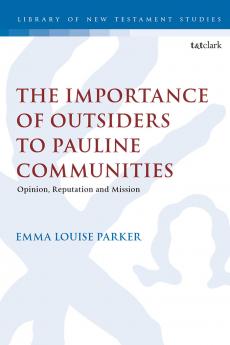English
Hardback
₹10665
(All inclusive*)
Delivery Options
Please enter pincode to check delivery time.
*COD & Shipping Charges may apply on certain items.
Review final details at checkout.
Looking to place a bulk order? SUBMIT DETAILS
About The Book
Description
Author
<b>This book argues that despite Paul's often dramatic and critical descriptions of non-Christians his letters reveal a deep concern for the presence of outsiders and for their opinion of Christians.</b> Parker suggests that outsiders are enormously important to Paul: they determine whether Christian communities dwindle or thrive while also playing a key role in helping such communities to understand and shape their purpose as missional disciples develop their thinking and practice around normal daily events and relationships - and even shape how they understand God. <br/><br/>Parker offers a careful exegesis of the main texts within the Pauline corpus revealing a sensitivity to the outsider; including 1 Thessalonians Romans 1 Corinthians and the Pastoral Epistles. By using Social Identity Theory she explores key concepts of group boundaries identity and inter-group relations highlighting a theme which is significant in Paul's own thought: the importance of similarity between groups. Whilst not denying the counter-cultural identity of the new Christian communities Parker concludes that Paul reveals the areas of overlap between insiders and outsiders since these areas not only create opportunities for positive opinions and relationships but also point to a greater understanding of God.
Delivery Options
Please enter pincode to check delivery time.
*COD & Shipping Charges may apply on certain items.
Review final details at checkout.
Details
ISBN 13
9780567713803
Publication Date
-11-07-2024
Pages
-208
Weight
-395 grams
Dimensions
-156x234x12.69 mm








